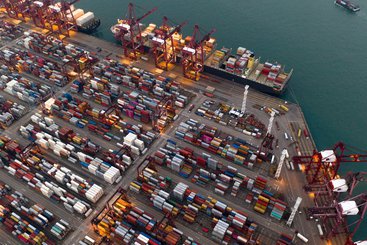The automotive industry in Nigeria is one of the country's most promising sectors due to its growing domestic market size. The large continental market offered by the African Continental Free Trade Area (AfCFTA) is likely to present an opportunity for the industry.
The Nigerian auto industry gained prominence in the 1970s and 1980, with a production capacity of 149,000 units a year, but was constrained by the high cost of domestic production and weak demand amid economic problems, currency volatility and the end of the commodity boom. Today, despite having a vehicle market size of 1,150,000 for new and used cars and a growing middle class, the country is a net importer of (mostly used) vehicles, and domestic production has been in declining. In 2021, imports of vehicles reached around $2.3 billion, with 60% being passenger cars. Nigeria is also a significant net importer of automotive components, sourced mainly from China and South Africa. To reverse this trend, the Nigerian government has taken action to revive the industry and enhance its competitiveness through the National Automotive Industry Development Plan (NAIDP – 2014).
In this paper, we explore the opportunities for the Nigerian automotive sector under the African Continental Free Trade Area (AfCFTA). We put forward key actionable policy recommendations for the Nigerian government to make it a reality, which include:
- Support greater volumes of exports of existing product lines (trailers, semi-trailers, and pneumatic tyres) to utilise production capacity and develop economies of scale.
- Improve the investment climate to attract foreign investors in large assembly and manufacturing plants resulting from greater continental demand.
- Promote the movement from SKD to CKD assembly
- Encourage exports of intermediate and ancillary products
- Engage with large producers of raw materials (lithium, aluminium and rubber).
For more information on our AfCFTA work, visit our programme page: Supporting Investment and Trade in Africa.






